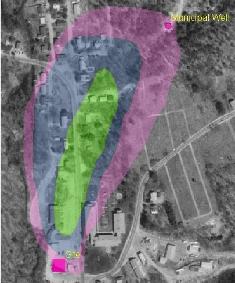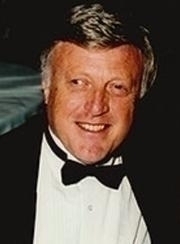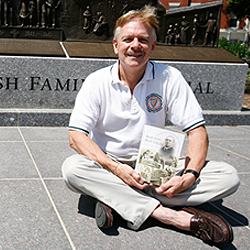Everybody seems to be wondering what has Historian Laureate Patrick Conley’s knickers in a twist over R.I. Department of Environmental Management’s regulatory structures, so I offer a bit of perspective on his beef with DEM. As Bob Plain pointed out in this excellent post, Conley is currently subject to at least two corrective actions by our state’s environmental watchdog. One of those actions stems from quite arguably the greatest environmental disaster to ever hit Rhode Island.

Back in September of 2001, just days prior to the World Trade Center attacks of 9/11, the village of Pascoag, in the Town of Burrillville, was made victim of a massive toxic event that continues to be felt by the residents of the sleepy hamlet. News of this disaster was drowned out in the media by the events of 9/11, but the effects on the health and safety of the people of Burrillville are equally as terrifying. I am writing, of course, of the contamination of Pascoag’s only public water supply by the failure of underground gasoline storage tanks located at 24 North Main St.
As of November of 2013, the property is owned by one 20 Fairmont St., LLC, which happens to share an East Providence address with Conley’s development company. An address to which the latest round of RIDEM NIE’s , or Notice of Intent to Enforce, have been sent, addressed to one Colleen Conley c/o Dr. Patrick Conley. The owner of the property is responsible for enacting soil and water monitoring and management plan with the RIDEM, also known as a Corrective Action Plan.
The failure of these tanks, according to DEM, released a significant, undetermined quantity of gasoline and the now-banned additive methyl tertiary butyl ether, or MTBE, into the aquifer under the village. The spill was so profuse that some testing wells were found to have standing gasoline in them months after the spill had been discovered. MTBE has been fully or partially banned in many states in the U.S., and for good reason; it has has proven to be a potent carcinogen.
In 2011, as a reporter for ecoRI News, I decided to look back on the spill and how it affected the lives of people in Pascoag. I spoke to many members of the community, the Pascoag Utility District (PUD), RIDEM, and sources at the EPA. Unfortunately, the then owner of the property was – and continues to be – “in the wind,” to use law enforcement parlance.
This small community has been ravaged by the lingering effects of the spill.
Many in the community have developed, as one town resident called, “oddball” cancers. Others believe that exposure to the chemical caused a spate of Multiple Sclerosis diagnoses in the town. In the weeks preceding the discovery of the spill, residents complained of afflictions from recurring ear infections, to massive chemical burns. The financial cost to the townspeople has been steep, as well. After the spill, the PUD was forced to tie into the wells of the Harrisville Fire District, and wound up paying double what most Rhode Islanders pay for public water for ten years.
By the time that the spill had reached its maximum impact to the aquifer, MTBE levels had risen to 42 times the EPA’s maximum exposure limit. Due to the fact that the owner of the property had skipped town, DEM was saddled with 100 percent of the cleanup costs which, without help from the EPA, would have bankrupted the state’s Leaking Underground Storage Tank program.
Since then, Exxon/Mobil has settled a class action suit with the people of Pascoag for a mere $7 million – which translates to about $800 for each claimant – and the town has just finished drilling a new well, far away from the contaminated site.
Conley and his associates have been repeatedly warned by RIDEM about non-compliance, and yet, still they seem shocked by the agency’s actions. In his op-ed in the ProJo, Conley writes:
Providence was home to the world’s largest tool factory (Brown and Sharpe), file company (Nicholson File), engine factory (Corliss Steam Engine Company), screw factory (American Screw Company), and silverware manufacturer (Gorham). These firms were exuberantly proclaimed as Providence’s “Five Industrial Wonders of the World.”
What he fails to mention is that the sites of all five of these former “powerhouses” are now horribly contaminated with everything from heavy metals, to petroleum by-products, to industrial process waste. He then writes:
If that zero-growth bureaucracy (DEM) existed in the 19th century, it would be a wonder if our five industrial wonders could have acquired permits to operate.
The answer to that question, Mr. Conley, is a resounding, “No!”
See, that’s the thing about the unending march of science, you tend to learn things in 150 years that cast a pallor over the “successes” of these former industrial giants. Namely, their horrible legacy of detrimental environmental and human health impacts.
The RIDEM has spent millions remediating this spill. All they are asking from Mr. Conley and his associates is that they maintain a commitment to cleanup the site of the former gas station. The contamination was known when Conley bought the parcel, and thus he should have known about the need for a RIDEM-approved action plan for the site. Maybe Conley could do us all a couple of favors and a) STFU about the “regulatory burdens of DEM,” and b) stop being crybabies and CLEAN UP THE MESS THAT YOU KNOWINGLY PURCHASED!


